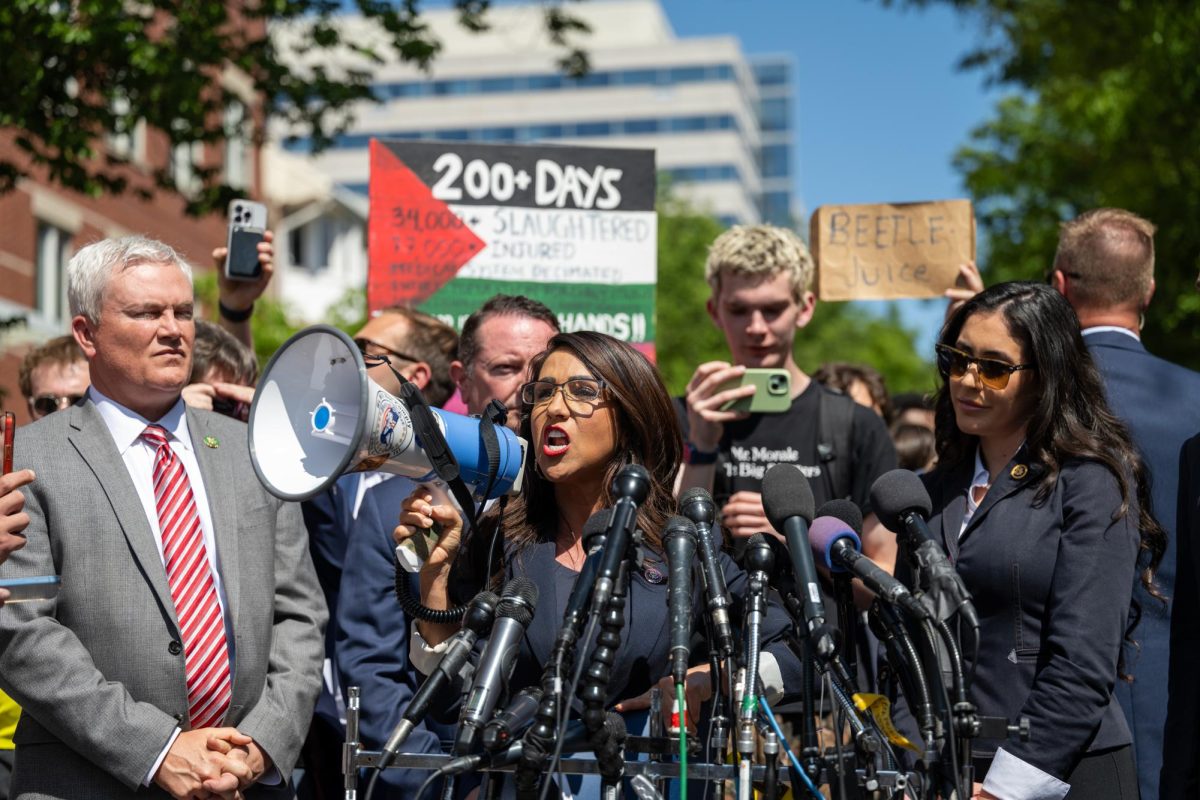
The two attorneys who oversaw President Barack Obama’s review of elections called for ways to create shorter lines and more organized polling places Wednesday at the GW Law School.
The 112-page report on the U.S. voting process offered recommendations like an expansion of early voting and revamped online registration.
Key recommendations the commission made to the president were to improve access to the polls before voting, improve management of the polling places and reform the certification process for voting technology.
Benjamin Ginsberg, a co-chair of the commission who was the chief attorney on the 2012 Mitt Romney campaign, said their goal was to approach the topic in a bipartisan manner.
“[The goal was to] fix fundamental flaws where you don’t have to come at [an issue] from a Democratic or Republican perspective. This will make the voting experience better for American voters on a bipartisan basis,” Ginsberg said.
The report also addressed the the need for increased professionalism in the field of election administration, which co-chair and chief attorney of Obama’s 2012 campaign Robert Bauer said must be taught and mastered like any other public administration position.
There are no plans to turn the report into formal legislation, but rather to bring it to the different state legislatures, and reform election processes locally
In addition to the physical report, the commission created a website with the Caltech-MIT Voting Technology Project, which has election calculators that help election officials effectively manage lines and allocate resources.
“Voters should know that these tools are out there,” commission member Trey Grayson said. “If they are not being used, they should raise a stink to highlight the administrators that are not taking advantage [of the tools].”
Commission member Nathan Persily, a professor at Stanford Law, said the disappearance of schools as polling places is having a significant impact on elections.
“Schools are the most ubiquitous and accessible [polling places],” said Persily. “If you lose schools, you lose a huge number of polling places.”
The commission also addressed the problem of lines at the polling places, one of Obama’s criticisms of the 2012 election. They found several factors affecting the length of lines, such as equipment malfunctions.
Long lines are unique to presidential elections, the commissioners found.
The report found that election officials had enough resources to work with, according the testimonies commissioners heard. The report proposed increasing training for election officials on how to most effectively divide resources between polling places.
The commission pushed back against the idea that the country needed a “sizeable election reform,” and cited the many jurisdictions that have different needs during elections.




